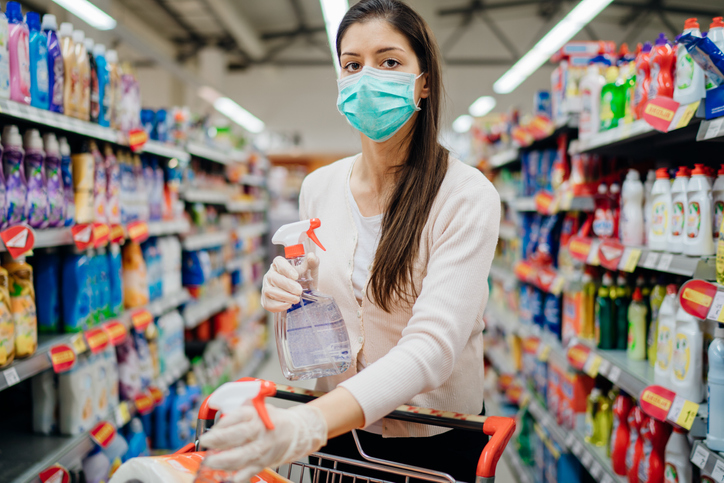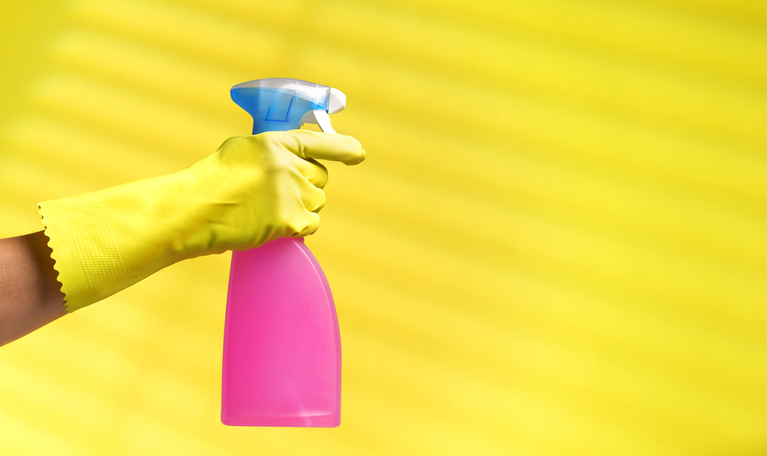What Is The Hygiene Hypothesis and Should You Believe It?

By Joy Stephenson-Laws, J.D., Founder
Several years ago when my son was a baby (he is now a twenty-something Millennial), I was one of those new moms obsessed about protecting my baby from germs. For example, if his pacifier touched the freshly cleaned kitchen floor even for a split second I wouldn’t let him touch it. Some people would tell me to relax and say that babies need germs to develop their immune systems. They would emphasize that there is such a thing as being “too clean.”
So now it’s 2020, and due to COVID-19 I still find myself cleaning, washing and sanitizing as if I have a new baby in my home. Many of you are probably doing the same. We are being very diligent about washing our hands and cleaning highly touched surfaces because it is strongly recommended by the Centers for Disease Control and Prevention (CDC) and other health professionals.
But are we “weakening” our immune systems by doing all this?

Proper and frequent handwashing and cleaning commonly touched surfaces such as your cell phone, door knobs, and counter tops are good preventative measures you can implement in order to help decrease your risk of contracting coronavirus and contaminating others with the virus. Do not rely on false information which suggests that you can be too clean. If you do, you may put yourself and others at risk.
To completely understand all of this, I think it’s important to know why some might think that being extra clean can be bad for the immune system.
Have you heard of the hygiene hypothesis?
“For healthy immune function, it's important we're exposed to a diverse range of bugs in the environment, known as microbes. Most of these don't make us sick,” according to one recent Medical Xpress report.
“The hygiene hypothesis is a theory that suggests a young child's environment can be ‘too clean,’ and they won't be exposed to enough of these microbes to effectively stimulate their immune system as it develops.”
With that said, many are now wondering if all of the COVID-19 sanitizing going on is causing our immune systems to be weaker and actually less capable of fighting off the virus. But scientists have recently refuted the hygiene hypothesis.
Being too dirty does not help.“Importantly, being too dirty doesn't help our immune system either. It generally makes inflammation [which definitely has the potential to weaken the immune system and contribute to disease] worse.”
We have to remember that we are constantly being exposed to microbes no matter how much we clean our houses and wash our hands. It is impossible to escape all microbes.
“Microbes are everywhere: in the air, on food, and in plants, animals, soil and water. They can be found on just about every surface, including inside and outside your body.”
As mentioned, most of these microbes do not make us sick. But the point is we are constantly exposed, so our immune systems do not need extra training through more relaxed hygiene practices (less handwashing, less cleaning, more exposure to germs).
What’s particularly noteworthy about the report discussed is that it mentioned six factors that can in fact weaken the immune system (being extra clean is not one of them). These factors are:
- Not getting enough sleep
- Taking certain medications and overusing antibiotics (This does not mean that you should stop taking your medicine or antibiotics. Talk to your doctor or a competent healthcare professional)
- Having a vitamin D deficiency
- A diet rich in processed foods and lacking nutrient rich foods such as fresh fruits and vegetables
- A lack of exercise
- Stress and anxiety
The good news about these factors is that they are controllable. I also highly recommend drinking alcohol in moderation (if at all) and avoiding smoking in order to prevent a weak immune system.
So keep cleaning, and stay safe and healthy.
Enjoy your healthy life!
Disclaimer: This article is not intended to provide medical advice. Please consult with your doctor or another competent healthcare practitioner to get specific medical advice for your situation.
The pH professional health care team includes recognized experts from a variety of health care and related disciplines, including physicians, attorneys, nutritionists, nurses and certified fitness instructors. This team also includes the members of the pH Medical Advisory Board, which constantly monitors all pH programs, products and services. To learn more about the pH Medical Advisory Board, click here.







